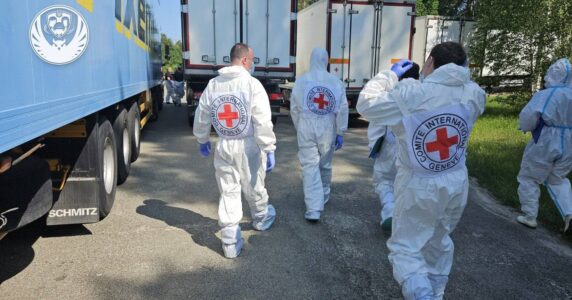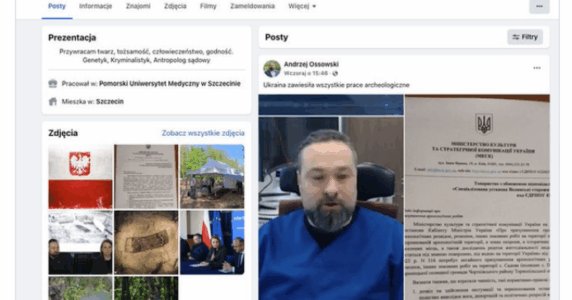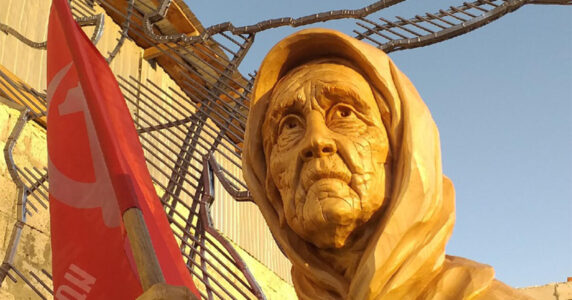Navigation and useful materials
Putin won the information war for the brains of the people of Russia, but completely lost it to the citizens of Ukraine. The Centre for Strategic Communication and Information Security has collected the main fakes and narratives of the Russian propaganda of June 3-5.
- Russia’s closed sky
- Why propaganda in Russia is now believed more than in the USSR
- The lost information war with “liberated” Ukrainians
- Putin and Kutuzov
Russia’s closed sky
On June 5, Bulgaria, North Macedonia and Montenegro closed their airspace to Russian Foreign Minister Lavrov’s plane. Consequently, his visit to Serbia scheduled for June 6-7 was cancelled. What a slap in the face!
Meanwhile, the existence of Russia’s air fleet as such is in jeopardy. And although Russian media are now reporting on how to overcome sanctions with the help of “domestic producers”, the situation is critical.
There was a story with an Air Serbia aeroplane, which could not take off because there were no parts to fix it.
IN REALITY, just two days after the full-scale invasion, the EU approved a full ban on the supply and leasing of aircraft to Russia, as well as insurance and maintenance of such planes.At that time, Russian airlines operated 980 passenger liners with a market value of $20 billion.
Russia thought it would outsmart everyone and passed a law transferring (basically stealing) about 800 planes to its register, continuing their use and flying them only to the countries that have not supported sanctions.
One such country was Sri Lanka. But Russian Aeroflot’s Airbus A330 was arrested in Sri Lanka at the end of last week because it was stolen from its Irish owner. Russia responded immediately, and now the stolen planes do not land in both island countries.
Thus, of the 56 international routes of Aeroflot, only 12 remain. This is how sanctions work.
Here are some more facts about how they have already cut the wings of Russian aviation:
– Russian airlines have officially allowed about half of the air fleet to be disassembled so that at least the other half can fly.
– In June, sanctions have already been imposed against: Voronezh Joint-Stock Aircraft Company, Irkutsk Aviation Plant and a branch of the Ilyushin Aviation Complex.
– China’s Civil Aviation Authority has closed the airspace for the Boeing 757 of the Russian airline Aviastar-TU. China claims that aircraft do not have “double registration, which does not meet the requirements of the International Civil Aviation Organization.”
– The largest airport in the Russian Federation “Sheremetyevo” furloughed about 40% of its staff — about 6-7 thousand employees. The same fate befell Vnukovo.
– Russian airports are asking to open duty-free shops for domestic passengers. This will increase revenue at least somewhat amid falling international traffic.
– 99% of this year’s pilot graduates cannot find a job.
– For 17 billion rubles from the National Welfare Fund, the government will buy bonds of Ural Airlines, Siberia and Aurora.
Why propaganda in Russia is now believed more than in the USSR
Russia seems to be engaging in an unprecedented experiment: it is waging a war and yet pretending to “rebuild” what was ruined by this same war. So it is not surprising to see two stories like this side-by-side: the governor of Pskov oblast is sending storybooks to the Donbas while invading Russian soldiers are losing their lives there.
This is the reality of modern Russia. How is its propaganda succeeding? Why has it been so effective in the open information space? Why do Russians believe in nonsense like “Ukraine was going to attack first”, “Ukrainians are tired of the Nazis and are waiting for liberators” and “staged crimes in Bucha”?
Why does this propaganda lie convince most modern Russians, when Soviet TV was already distrusted by the vast majority of its viewers in the 1980s? Have the Russians become more stupid, or have the methods changed?
IN REALITY, the propaganda has become insidious. Here are some tricks that distort Russians’ way of thinking:
– Older information channels have now been replaced by much more tenacious and flexible online media and social networks. Today, the effect is achieved through multichannel and intense engagement in the advocacy agenda of users, even ones consuming non-political content. For example: the sports TV channel “Match” has turned into a propaganda talk show, in which the host wants “the national football team of Ukraine to burn in hell.”
– Using the psychological mechanism of projection. It is difficult to admit one’s own anger, aggression, stupidity, but these qualities can be attributed to Ukrainians and Americans. For example, it is their “cunning nature” that is allegedly to blame for Aeroflot’s refusal to fly to Sri Lanka, though poor Russians have already bought their tours.
– Variability of propaganda discourse, the presence of a whole bunch of possible interpretations. When many versions are constantly offered, there is a cognitive load: the brain no longer wants to find out what really happened. For example, this happened in the story with the Malaysian Boeing.
– A cocktail of myths and reality: there is very little truth and a whole lot of disinformation around it.
– Using emotional and “sacred” subjects.
Thus, the problem is not that Russians do not have access to truthful information about the war in Ukraine, but that they no longer believe in the truth as such. Russian propaganda manipulates the man of the post-truth era. You can read more about this here.
The lost information war with “liberated” Ukrainians
Russian propaganda still manages to handle its domestic audience. But what does it do with the citizens of Ukraine from the so-called “liberated territories”? Unlike “LPR/DPR,” they know the cost of freedom, elections, the Ukrainian passport, whose power greatly exceeds that of the Russian passport in the modern world.
The first thing Russia did in the temporarily occupied territories was turn off Ukrainian TV channels. Mobile operators and Internet providers were immediately replaced. They were carefully preparing to brainwash another batch of “liberated people.”
IN REALITY, the whole thing was a flop. Here’s why:
- Protest rallies were held regularly in Russian-speaking Kherson until they were suppressed by full-on violent methods.
– Staged videos of Mariupol, Kherson and Melitopol residents released from the “Nazi concentration camp” are frankly ridiculous.
– The image of “polite people” has been obsolete for at least 8 years, and after looting, rape and murder, there is no chance it will work.
– A humanitarian “show” like sending Pushkin’s books to Kherson does not work because no one has ever banned them in Kherson or Ukraine.
– The same is true of the imposed Russian TV channels, since those who wanted to watch them before could easily do it via satellite TV.
– The idea of “denazified” Ukrainians did not work at all. It is enough to look at the interviews of captured Azov fighters or Kherson mayor Volodymyr Mykolaienko.
– Reliance on Ukrainian veterans of the Second World War (or people old enough to pass for them), who, according to the plan, should be the leading group in the “fight against Nazism”, was a complete disaster.
– Neither are there happy “liberated” young people of Kherson region, who have allegedly suffered from “Westerners” all this time.
And that is why Telegram channels of Russian propagandists hysterically scream, “Denazification is inevitable!” They were much quieter early during the full-scale war.
Putin and Kutuzov
And finally, let’s talk about Putin, who would really benefit from some military training. His statement that “our air defence cracks the equipment supplied by the US to Ukraine like peanuts” has been widely publicized.
Of course, it is meant for two audiences. The first one is the Russian audience, which is meant to feel happy about the “greatness of Russian weapons.” The second one is the American audience, which is meant to feel like their support makes no sense.
This is the basis of Putin’s main recent narrative: stop supplying weapons to Ukraine; it only prolongs the war; let us finish, and everything will be fine.
IN REALITY, Putin made a pretty obvious blunder as far as military expertise goes. The vast majority of weapons supplied to us from the West (howitzers, tanks, armoured combat vehicles and, more recently, MLRS) do not fly. Technology has not yet reached this point.
In addition, the skies over Ukraine have been closed since the beginning of the invasion, and no Western equipment has been delivered to Ukrainian airfields.
So, who knows what is getting “cracked like peanuts” in the Ukrainian skies by Russian air defence systems. Certainly, not weapons. Or maybe, somebody is just spoon-feeding sweet lies to Putin — for example, general Kartapolov, who recently claimed that Russian troops have suffered “no significant losses” in Ukraine.
On June 5, we found out that a general with last name Kutuzov, sacred for Russians, died while leading an attack.
What does Kutuzov’s death in Ukraine mean to us?
- If a whole commander of the army corps with the rank of major general leads an attack, Russians have indeed suffered huge losses among majors, captains and lieutenants in Ukraine.
- It is clear that the general was required to immediately “win” for his “tzar”, and he could not get it, so he personally led his subordinates to attack.
- The death of another Kutuzov in Ukraine is a great testimony to the management of the troops and the morale of the occupiers.
We somehow even feel sorry for Kutuzov. From a historical perspective. Maybe he could also burn Moscow and save Russia. This would be such a poetic end to the empire. Instead, Kutuzov-2022 died ingloriously in Ukraine and failed to win for his complete nutjob of a leader.
If you have found a spelling error, please, notify us by selecting that text and pressing Ctrl+Enter.


